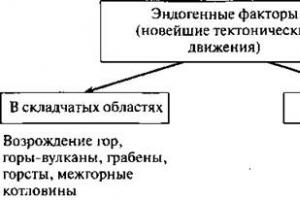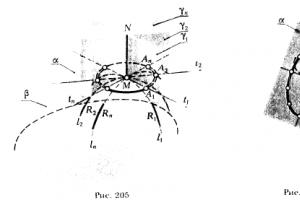In negative sentences in German, the negation nein, the negative particle nicht, and the negative pronoun kein are most often used. To express negation, the pronouns niemand, keiner, nichts, the adverbs nirgends, niemals, nie, the conjunction weder ... noch are also used.
Negation nothing in German can refer to any part of a sentence. The place of negation depends on which member of the sentence it refers to. Most often, the negation nicht comes before the word being negated:
Ich arbeite nicht hier. - I don't work here.
Nicht alle Studenten antworten heute gut. — Not all students answer well today.
Ich brauche nicht dieses Buch. - This is not the book I need.
When negating a nominal predicate, the negation of nicht comes before the nominal part of the predicate, i.e. in the penultimate place:
Diese Übung ist nicht leicht. - This exercise is not easy.
When negating a predicate (when, as a rule, the content of the entire sentence is negated), nicht in German stands:
- in last place if the predicate is expressed by a verb in a simple tense form (Präsens or Präteritum):
Ich verstehe diese Regel nicht. — I don’t understand this rule.
- when there is a noun with a preposition in a sentence, the negation of nicht, related to the predicate, usually comes before this prepositional group:
Wir gehen heute nicht ins Theater. — We are not going to the theater today.
- in the penultimate place if the predicate is expressed by a verb in a complex tense form or a verb with a separable prefix:
Das haben sie gestern nicht gesehen. “They didn’t see this yesterday.”
Die Vorlesungen und Seminare werden morgen nicht stattfinden. — Lectures and seminars will not take place tomorrow.
If the negation nicht in German refers to a complex predicate expressed by a modal verb and the infinitive of another verb, then it can also appear after the modal verb:
Ich kann heute nicht kommen. Ich kann nicht heute kommen. — I can’t come today.
Negative pronoun kein in German it refers to a noun and comes before it. Such a noun in the corresponding affirmative sentence would be used with an indefinite article or without an article:
Das ist eine Universität. — Das ist keine Universität.
Wir essen Obst. — Wir essen kein Obst.
Kein replaces the article and agrees with the noun in gender, number and case. The negative pronoun kein has the meaning “neither”, “no” and is translated into Russian by the negation “not” with the predicate:
Dort steht kein Schrank. — There is no closet there.
Wir schreiben heute keinen Test. — We are not writing a test today.
Only one negation can be used in a German sentence:
Ich sehe dort keine Zeitung. - I don't see any newspaper there.
Kein is often used with the adversative conjunction sondern (to express opposition):
Das ist kein Fichtenbaum, sondern eine Tanne. - This is not pine, but spruce.
To express negation, in addition to nicht and kein, negative pronouns can be used in German: keiner(no one, not one), niemand(nobody), nichts(nothing, nothing) and negative adverbs: niemals, nie(never), nirgends(nowhere).
These parts of speech, acting in a sentence as various members of the sentence (subject, object, adverbial), also serve as negations. If there are negative pronouns and adverbs in a sentence, other negations are not used:
Niemand singt hier. - Nobody sings here.
Keiner hat uns davon erzählt. - Nobody told us about this.
To express negation in German, pronouns and adverbs are also used: keinmal(never, never) keinesfalls(in no way, in no way) keinerlei(no), nimmer(never):
Ich habe keinmal davon gehört. - I've never heard of this.
Wir werden das nimmer vergessen. - We will never forget this.
The negative conjunction is also used as a negation weder...noch(no no). When using this conjunction in a German sentence, the presence of any other negation is also excluded:
Weder ich noch mein Freund gehen heute auf die Eisbahn. — Neither I nor my friend are going to the skating rink today.
Negation nein in German it does not refer to any of the members of the sentence, it is of a general nature. It is an introductory word and is separated by a comma:
Lern ihr morgen? - Nein, wir lernen morgen nicht. Are you studying tomorrow? - No, we don’t study tomorrow.
Is it das ein Museum? — Nein, das ist kein Museum. This is museum? - No, this is not a museum.
To improve your German or prepare for exams, we recommend classes with online tutors at home! All the benefits are obvious! Trial lesson for free!
We wish you success!
If you liked it, share it with your friends:
Join us onFacebook!
See also:
We suggest taking tests online:
Let's take a look in this article negation in German: kein and nicht, let’s find out when and what to use!
Let's start with Negationsartikel(negative article) or as it is also called negative pronoun "kein"!
When do we use kein?
“kein” is used in declarative sentences in combination with nouns that have the indefinite article ein either with nouns without articles (with zero article). Therefore, instead of ein/eine when negated, we put kein/keine in front of our noun.
Beispiele:
Ist das ein Buch? - Nein, das ist kein Buch.
Willst du eine Birne? - Nein, ich will keine (Birne can be omitted).
Gloria hat keinen Fehler gemacht.
Wir haben kein Tor geschossen.
Wir haben keine Zeit.
Ich habe keine Freunde.
Lisa hat keine Angst. Sigmund hat keinen Hunger
If an adjective comes before a noun, then the scheme is as follows:
kein + adjective + noun
Naturally, don’t forget about the declension of kein and adjectives!
Beispiele:
Wir finden keine guten Bücher hier.
Ich habe keine gute Idee
Sie hat keine tolle Figur
Meine Freundin hat keine schönen Klamotten
Need to know that kein is inflected in the same way as the articles: in units number the declination will be the same like at the indefinite article . A in plural number"kein" will be inclined, as a definite article.
Now let's move on to the negative particle “nicht”.
Its use:
If our noun has a definite article, then we already make a negation with the particle nicht.
Beispiele:
Ist das dein Heft? - Nein, das ist nicht mein Heft.
Ist sie die Lehrerin? - Nein, sie ist nicht die Lehrerin.
Sie ist nicht meine Freundin!
Also, with the help of the negative particle “nicht”, other parts of a sentence in German, such as verbs, adjectives, etc., can be negated.
Where should I put “nicht” in a sentence?
The place of “nicht” in a sentence depends on WHAT you want to deny.
If we deny a simple predicate or the entire idea of a sentence, then this particle goes to the end of the sentence:
Beispiele:
Ich singe nicht.
Leo kommt heute nicht.
Ich besuche meinen Freund nicht.
Ich helfe meiner Mutter am Wochenende nicht
Verstehst du das? - Nein, ich verstehe das nicht.
Angela tanzt nicht.
If a complex predicate (consisting of two or more verbs) is negated, then “nicht” is placed before the 2nd part of the verb:
Beispiele:
Sie hat dieses Buch noch nicht gelesen.
Samantha wird diese Regeln nicht wiederholen.
If the negation refers to any other member of the German sentence, then the particle “nicht” is placed immediately before the member of the sentence that we deny:
- if an adjective is negated, then “nicht” is placed immediately before the adjective:
Beispiele:
Laura ist nicht alt.
Mona kocht nicht gut.
Eduard ist nicht sportlich.
Antonio ist nicht groß.
Linda is nicht dick.
Wir laufen nicht schnell.
- if we deny words indicating a place (where? from where and where?):
Beispiele:
Ich fahre heute mit meiner Freundin nicht nach Dortmund (, sondern nach Stuttgart).
Morgen bleiben wir nicht zu Hause.
Er kommt nicht aus der Türkei.
- if there is a preposition + pronoun
Beispiele:
Sie wartet nicht auf mich.
Wir gehen nicht auf die Straße. - We won't go outside.
- nicht is placed before proper names if we want to deny them:
Beispiele:
Er ist nicht Herr Steinbeck.
Ich bin nicht Frau Ecker! Ich bin Frau Becker!
Nicht and ein can be used in the same sentence only in two cases:
-if the speaker wants to highlight a noun in a sentence and puts it at the beginning of the sentence for this purpose. In this case, nicht will appear at the very end:
Eine Kamera braucht sie nicht. – She doesn’t need a camera.
- if Ein means the usual number 1.
Ich habe nicht einen Euro in der Tasche. (= Ich habe keinen Euro in der Tasche.)
But in short, kein is used before nouns that do not have an article or have the article ein/eine. And nicht is used with other members of the sentence such as adjectives, verbs.. (also with nouns that have the definite article der/die/das or if the possessive pronoun mein/dein is placed before the noun).
Ich esse kein Fleisch, weil ich Fleisch nicht mag. — I don’t eat meat because I don’t like it.
More interesting:
Negation of nein
German negation nein corresponds to the Russian “no” when the answer to a question is negative and denies all offer. It is followed by a period or comma. nein does not affect word order, i.e. is not part of the sentence and does not take up space.
For example:
Gehst du heute ins Kino? - Nein(Nein, ich be suche heute meinen Schulfreund).
Please note that in Russian the word “no” has another use ( compare: In this book No pictures = not available. I have today No time = don’t have time). In these examples, "no" does not apply to the entire sentence; in German it corresponds in the first example to the impersonal phrase es gibt + negation kein; in the second example - verb haben + negation kein: In diesem Buch gibt es keine Bilder. Ich habe heute keine Zeit.
Negation of kein
German negative kein means "none", and in the above examples you can mentally add this word (There are (no) pictures in this book; I don’t have (any) time today). Therefore, if you can mentally add the word “none,” then you need to use the negation kein before the corresponding German noun.
For example:
We Not we want war. (= We Not we want no war.) Wir wollen keinen Krieg.
Denial of nothing
The German negation nicht must be used in all other cases, i.e. when it is impossible to mentally add the word “none” to the negation.
For example:
Book Not interesting. Das Buch ist nothing interessant.
My parents live now Not in Samara. Meine Eltern leben jetzt nothing in Samara.
Like the Russian negation “not”, the negation nicht must be used immediately before the word being negated (see examples above). But if the negation of nicht refers to the predicate, then nicht must be used at the very end of the sentence.
For example:
Petrov does not attend our seminar. Petrow be sucht Unser Seminar nothing.
I I'm not going to the cinema today. Ich gehe heute ins Kino nothing.
Cp.: I'm going today not to the cinema. Ich gehe heute nicht ins Kino.
Exercise 1. Indicate: a) what negation you will use in German sentences if you want to say that:
1. You no longer live in a dormitory. 2. Your friend’s name is not Nikolai. 3. You are studying a language other than English. 4. You don't always have free time. 5. You have no brothers or sisters. 6. Your university does not have a mechanization department.
b) in which of these sentences the negation should be at the end.
Negative pronouns
The German language also has negative pronouns: niemand“nobody, nobody, nobody”; nichts"nothing, nothing"; nie“never” and some others. Unlike the Russian language, There cannot be two negatives in a German sentence, i.e. if there is a negative pronoun, then you no longer need to use either kein or nicht.
I'm here no one I know. Ich kenne hier niemand.
There there is nothing. Dort gibt es nichts.
Answer the question with a negative
If the negation in German is contained in a question, then such a question cannot be answered with “Ja”. If you confirm the questioner’s thought and agree with him, then you must answer “Nein.” If you object to him, do not agree, then you must answer “Doch.”
Kennst du die Wörter nicht? - Nein.(= Ich kenne die Wörter nicht.)
- Doch.(= Ich kenne die Wörter.)
Exercise 2. Indicate which of the following questions can be answered: a) Doch, b) Nein:
1. Fahren Sie zum Institut mit dem Autobus? 2. Kommt Ihre Mutter nicht? 3. Ist im Labor niemand da? 4. Haben Sie heute keine Zeit? 5. Beginnt die Stunde um 9 Uhr?
Varlamova Alena
This work is aimed at studying one of the phenomena of such a grammatical section as syntax, which considers the words in a sentence, the sentence itself, its structure, features and types.
Download:
Preview:
Student research and design competition
"Intellectual future of Mordovia"
Research work
on the topic of:
"Negation in German"
Scientific supervisor: Evgeniy Gromov
Vladimirovich, German teacher
Bolshoye Ignatovo
2011
School name: Municipal educational institution "Bolsheignatovskaya secondary
Comprehensive school"
Head teacher: Nazimkina Lyubov Dmitrievna
School postal address:431670, Republic of Mordovia,
Bolsheignatovsky district, village Bolshoye Ignatovo,
St. Sovetskaya 24
School phone: 2 – 12 – 30
Bolsheignatovsky district, village. Bolshoye Ignatovo, st. Lesnaya, 6, apt. 1.
Head of work:Gromov Evgeniy Vladimirovich
1.Introduction…………………………………………………………….4 - 5
2. Classification of negative language means………………....5 - 6
3.Choice of negative language means
in a German sentence. (Monogamy)………………………… 6 - 15
4. Features of the use of negation
(polygamy)……………………………………………………...15 - 16
5. Conclusion………………………………………………………………………………..17
6. References………………………………………………………..18
1. Introduction
As you know, language is a historically developed system of sound, vocabulary and grammatical means that objectifies the work of thinking and is a tool of communication, exchange of thoughts and mutual understanding of people in society.
Each language, including German, is a dynamic system that has a characteristic grammatical structure, the components of which are two interconnected sections: morphology and syntax.
This work is aimed at studying one of the phenomena of such a grammatical section as syntax, which considers the words in a sentence, the sentence itself, its structure, features and types.
The main content of the work isconsideration and study of one of the complex grammatical phenomena of the German language - negation.
The relevance of this topic lies in the fact that negation in the German language is a multifaceted phenomenon that requires constant understanding, changing along with the development of the language, the difficulty of which to study and understand mainly lies in the discrepancy with the Russian language.
Thanks to the huge number of ways to negate a German sentence and its members, the following problem has arisen: In what cases will the means of negation used be the most accurate and appropriate. The following authors dealt with the above problem: Agapova S.A., Admoni, Bakh A., Moskalskaya O.I., Yakimova E.A., etc.
In this context, it would be correct to identify a means of negation that could compete with the popularity of the particle nicht. The hypothesis can be formulated as follows: in German, along with the negative particle nothing there is a linguistic means of negation that is no less popular in terms of usage.
The object of study of this work is negative sentences, which are understood as sentences in which the connection between the subject and the predicate or between various members of the sentence is denied.
The subject of the study is linguistic ways of expressing negation.
The purpose of this work is to study the structure of the German negative sentence and its patterns, to identify the main features and specifics.
Tasks:
1) consider ways and means of negating a proposal;
2) determine the main differences in negation in the Russian and German languages;
3) find the most preferred means of expressing negation in modern German.
2. Classification of negative linguistic means.
In modern German there are a huge number of different linguistic means for expressing negation.
The most common means of negation is the negative particle nothing , which can refer to any member of a sentence expressed by any part of speech. Denying the predicate, nothing makes the entire sentence negative by negating another member of the sentence, nothing usually does not change the affirmative nature of the entire sentence and plays the role of a particle of negation.
Negative indefinite pronoun kein also quite often used in German. It negates only the noun and stands before all prepositive definitions in the place of the article. Pronoun kein denies not a single object, but the entire type (genus) of these objects and makes the sentence negative.
When contrasted in the presence of negation kein the meaning of the sentence remains positive, as
For example:
Z.B. Dieser Schrifsteller hat keine Novellen sondern nur Romane geschaffen.
In addition to the negations nicht and kein , which are not members of the sentence, there are negations that are members of the sentence. These include noun pronouns niemand, keiner, nichts and adverbs nie, niemals, nimmer, nirgends.
In German there is a special negative conjunction for the negation of homogeneous members - weder (nicht) - noch . If there are several homogeneous members, the second part is repeated:
Z.B. Ich kann weder heute noch morgen noch uber morgen verreisen.
Denial occupies a special place among the means of expressing negation. nein. It stands outside the sentence and does not enter into grammatical relations with any other words. Main function nein serve as an answer to the question:
Z.B. Willst du noch Wein? Nein./Nein, ich will nicht!
Negation of nein is not used in response to a negative question if the answer is affirmative:
Z.B. Hast du kein pass?
Doch, ich habe Pass. - No, I have a passport.
Nein, ich habe kein. - No, I don’t have a passport. (E.-M. Remarque)
As mentioned above, in German the negation nein not included in the offer. In the Russian language, the negation “no”, in addition to the function of a word-sentence, can be a predicate.
Z.B. Is anybody here? - Nobody here.
I don't have time, etc.
3. The choice of negative language means in a German sentence
Kein (as a negative article) is used if the affirmative sentence contains an indefinite article. To strengthen the negative before ein is used nicht. Ein in this case it is a numeral:
Z.B. Er hat mir ein Buch gebracht. - He brought me a book.
Er hat mir kein Buch gebracht. - He didn’t bring me the book.
Er macht nicht eine Ausnahme. - He doesn't make a single exception.
Er hat nicht ein Wort gesagt. - He didn't say a single word.
Also kein used before real nouns (denoting an indefinite amount of a substance) and nouns with-zeug, -werk:
Z.B. Er trank kein bier. - He didn't drink beer.
Er wunscht sich zum Geburtstag kein Spielzeug/kein Schuhwerk.- He doesn’t want to be given a toy (shoes) for his birthday.
Characterized by the presence kein and in stable combinations, if the sentence has the following structures:
1) noun + verb = verb:
Z.B. Er holte Atem. (= atmete) Er holte keinen Atem. - He wasn't breathing.
Sie hatte Angst (= angstigte sich) Sie hatte keine Angst. - She had no fear.
2) noun + verb - adjective:
Z.B. Er hatte Hunger.(= war hungrig) Er hatte keinen Hunger.- He was not hungry.
3) preposition + verb = adjective:
Z.B. Das ist ein Problem von sehr grower Bedeutung (= sehr bedeutungsvoll).
This problem is very important.
Das ist ein Problem von keiner sehr groën Bedeutung.
Also used when enumerating kein:
Z.B. Mitzubringen sind: Schlafsack, Waschzeug, Besteck, aber keine Skistiefel undkein Kofferradio.
You should bring: a sleeping bag, washcloths, (cutlery) cutlery, but do not take ski boots and a radio.
Kein can act as a negative subject or object:
Z.B. Keiner wollte sterben. - Nobody wanted to die.
Ich kenne keinen, der das tut. - I don't know anyone who does this.
Negative particle nothing used if the negated object is preceded by a definite article or pronoun:
Z.B. Das ist nicht der einzige Grund. - This is not the only reason.
Wir verloren die Hoffnung nicht. - We did not lose hope.
In stable combinations of a verb and a noun in the accusative, when these combinations cannot be replaced by one verb (that is, the verb and the object form one semantic whole, there is a close connection between them), it is also used nothing:
Z.B. Er kann Auto fahren. Er kapp nicht Auto fahren. - He can't drive a car.
If this connection is not close, then it can be used or nicht or kein.
Nicht is also used before als (as):
Z.B. Sie arbeitet als Kontrolleurin. - She works as a controller.
Sie arbeitet nicht als Kontrolleurin. - She does not work as a controller.
Nicht or kein can be used in an affirmative sentence if the noun does not have an article after the pronoun solche, in a number of expressions:
Z.B. Er ist Lehrer. Er ist nicht Lehrer. Er ist kein Lehrer.
Er treibt Sport. Er treibt nicht/keinen Sport. - He doesn't play sports
Er mag keine solchen Spiele. - He doesn't like such games.
Er mag solche Spiele nicht. - He doesn’t like such games
Don't forget that nothing comes before a preposition, a kein between preposition and noun:
Z.B. Er geht nicht ins Zimmer. - He doesn't go into the room.
Er geht in kein Zimmer. - He doesn't go into the room.
In these cases kein is rarely used and is always interpreted as a partial negation, while nicht, respectively, as a complete or partial denial.
Use of nicht and kein also depends on what is being negated: if it is a verb, then it is used nicht, if a noun - kein:
Z.B. Ich habe noch keinen Urlaub genommen. - I haven't taken a vacation yet.
Urlaub habe ich noch nicht genommen. - I haven’t taken a vacation yet.
In stable combinations nehmen + accusative can also be used either kein or nicht:
Z.B. Er nimmt nicht darauf Rucksicht. - He doesn't take this into account.
Er nimmt darauf keine Rucksicht (more often). - He doesn't take this into account.
From using nicht or kein the meaning may depend when we are talking about a profession, title, function, nationality or worldview:
Z.B. Er ist nicht Lehrer (Angestellter, Professor, Moslem, Pole).- He is not a teacher (employee, professor, Muslim, Pole).
Er ist kein Lehrer (Angestellter, Professor, Moslem, Pole).- He is not a teacher (employee, professor, Muslim, Pole).
Denial with nicht his profession is clearly denied, etc. (perhaps he is not a teacher, but, for example, an engineer), while with kein his abilities, qualities as a teacher, etc. are denied.(What kind of teacher is he?)
Nicht used instead kein (that is, only nicht) in such sentences, in which we are talking about a proper name without an article, which is either a subject and an object, or a nominal part of a compound predicate denoting the time of day and year:
Z.B. Sie mag Klaus (Herrn Mahl, Bonn) nicht. - She doesn’t like Klaus (Mr. Mehl, Bonn).
Er heiвt nicht Otto. - His name is not Otto.
Es wird noch lange nicht Herbst. - It won’t be autumn for a long time (literally).
Only nothing used in cases where the noun has become almost part of the verb, in expressions:
Z.B. Auto, Boot, Bus, Karussell, Rad, Rollschue, Schritt, Seilbahn (cable car), Ski) fahren; Wort halten to keep your word; Radio horen; Amok to riot, Gefahr to risk (get into trouble), Ski, Spiерuten to be ridiculed from all sides, Sturm laufen; Bankrott go bankrupt, Feierabend end the working day, Schluss machen; Pfeife rauchen to smoke a pipe; Bescheid sagen to inform, convey; Maschine schreiben to type; Flote play on the flute, Fuвball usw., Karten, Klavier on the piano, Schach, Skat, Tennis spielen; Schlange stehen stand in line.
Sie fahrt nicht Auto. - She doesn't drive a car.
Er steht nicht Schlange - He doesn't stand in line.
Pronouns niemand, nichts can be usedin a sentence as subject, object, determiner:
Z.B. Mir ist dort niemand bekannt.. - I don’t know anyone there.
Ich kenne dort niemand. - I don't know anyone there.
Jedermanns Freund ist niemandes Freund .- He who is a friend to everyone is a friend to no one(proverb).
Adverbs nie never, nimmer no more (obsolete, South German),niemals, keinesfalls, keineswegs,aufkeinen Fall, in keinem Fall, keinerlei, nicht einmal never deny the entire proposal to a greater extent than nothing:
Z.B. Das war nie und nimmer so. - This has never happened in my life.
Ich kann das nimmer aushalten. - I will never stand this.
Wir werden das niemals vergessen. - We will never forget this.
Nirgends, nirgendwo are used in a sentence as adverbs of place:
Z.B. Ich kann den Schlussel nirgends finden. - I can't find the key anywhere.
Solche Menschen wie hierfindest du nirgendwo .- You won’t find people like here anywhere.
Er war nirgends so gem wie zu Hause. “He didn’t feel as good anywhere as at home.”
Union weder...noch negates the entire sentence and comes before a verb or other part of the sentence:
Z.B. Weder haben wir es gewusst, noch haben wir es geahnt. “We didn’t even know about it, we didn’t even guess about it.”
Nicht, kein, nichts, niemand may be amplified by particles bestimmt, durchaus, ganz und gar, gar, in oral speech sicherl(tich), uberhaupt, absolutbe weakened by a particle fast:
Z.B. Das kapp ich (ganz und) gar nicht, durchaus nicht, absolut nicht. - I can’t completely/absolutely understand/understand this.
Das geht aufgar keinen Fall. - In no case will anything come of this.
Sie ist iiberhaupt nicht eifersuchtig. - She's not jealous at all.
Das ist gar niemandes Schuld. (geh. high) - This is absolutely no one’s fault.
Combinations can also be used to enhance:
Z.B. Ich habe nicht mehr und nicht weniger (nichts mehr und nichts weniger) gesagt. - I said nothing more and nothing less (nothing more and nothing less).
Das macht mich durchaus nicht froh. - This doesn’t make me happy at all.
Das beruhrt mich nicht im Geringsten. - This doesn’t/doesn’t concern/concern me at all.
To enhance negation in colloquial speech, a noun denoting insignificant value may be preceded by nicht or kein:
Z.B. Ach, nicht die Bohne! Keine Bohne! - Not a bit! Not at all!
Keine Spur! - Nothing like that!/Not at all!
Das ist keinen Pfifferling wert. - It's not worth anything / not a penny.
Special rules of the situation nicht in a sentence
In case of partial negation nicht comes before the word being negated, but not at the end of the sentence, as this will automatically be interpreted as a complete negation (the emphasis falls on the word being negated), before the word denoting quality/property:
Z.B. Er fahrt nicht mit der Straënbahn, sondern mit dem Bus. - He will not go by tram, but by bus.
Der Student hat nicht gut, sondern Ausgezeichnet gearbeitet. - The student worked not well, but excellently.
Nicht in case of partial negation, it may not appear before the negated word, but at the end of the sentence before the second, non-conjugated (separable) part of the predicate if the negated word is at the beginning of the sentence:
Z.B. Fleifiig kann er nicht arbeiten. - He cannot work diligently.
Fleiвig hat dieser Student nicht gearbeitet. - This student did not work diligently.
In complete denial nicht stands at the end of a sentence if the object in the dative or accusative is preceded by a definite article or pronoun, and the predicate does not have a second, inconjugated (separable) part and, accordingly, before the second, inconjugated part of the predicate, if any:
Z.B. Er liest das Buch nicht. - He doesn't read a book.
Er hat das Buch nicht gelesen.- He didn’t read the book.
Mandatory before a noun in the accusative, if it and the verb form a single whole:
Z.B. Er fahrt nicht Auto. (= mit dent Auto) - He doesn't drive a car.
Er spielt nicht Klavier. (= aufdem Klavier) -He doesn't play the piano.
Regarding the members of the proposal, nothing most often it costs before circumstance of the place, but after circumstances of time with prepositions, causes, goals, consequences, conditions:
Z.B. Er wohnt nicht in Polen. - He does not live in Poland.
Ich schliefin der Nacht (die ganze Nacht, gestern) nicht. - I didn’t sleep last night (all night, yesterday).
Er kommt wegen seiner Krankheit nicht. - He won’t come because of illness.
Das Spiel findet wegen des Regens nicht statt. - The game will not take place due to rain.
Always after adverbs:
Z.B. Das Spiel fand deswegen nicht statt. - That's why the game didn't take place.
Die Besichtigung des Schlosses bedurfte nicht der Zustimmung des Besitzers. - Inspection of the castle did not require the consent of the owner.
Before the nominal part of the predicate (before a noun or adjective):
Z.B. Er wird nicht Lehrer. - He won't be a teacher.
Sie wird nicht krank. - She won't get sick.
Before a noun that is combined with a functional verb, and also possibly before an object if it is common (for the purpose of better understanding, especially in oral speech):
Z.B. Der Fremdenfu"hrer besitzt nicht die Fahigkeit anschaulich zu erzahlen. - The guide did not have the ability to visually tell.
Er untersuchte den psychischen Zustand des Kranken nicht./ Er untersuchte nicht den psychischen Zustand des Kranken. - He did not examine the patient’s mental state.
Place nicht in a subordinate clause:
Dass er nicht arbeitet.
Dass er nicht Lehrer wird.
Dass er den Freund nicht sieht.
Dass er nicht an dich denkt.
Dass er das Buch nicht aufden Tisch
Dass er uns nicht gem be sucht.
Dass er uns vermutlich nicht be sucht.
Denn er macht das nicht.
It is interesting to consider the design translation feature nicht umhinkonnen zu + infinitive:
Z.B. Ich kann nicht umhin, es zu tun. - I can't help but do this.
Er hat nicht umhingekonnt, das zu horen. - He couldn't help but hear it. (Only in the perfect!)
Conveying negation using word forms.
In some cases, there are no negative words in a German sentence; negation is conveyed using word forms such as prefixes nothing + adjective(if written together, can be written separately)or noun, prefixes nichts- adjective or nounnegative prefix ip- + adjective(however, adjectives that have an unambiguous antonym cannot have this form:kurz short - lang long, dick thick - dünn thin, schlecht - gut), suffixes - los and -un, prefixes -miss + verb or noun(using -miss, in addition to denial, an erroneous action may also be shown -missdeuten (=falsch deuten) - to falsely/misinterpret missverstehen (=falsch verstehen) - to falsely/misunderstand):
Z.B. nichtamtlichlnicht amtlich; nichtberuflich der Nichtraucher; der Nichtschwimmer. - unofficial; unemployed non-smoker; can't swim
Z.B. nichtstuerich; nichtswurdig der Nichtstuer; der Nichtskonner - idle; an unworthy loafer; mediocrity,
Z.B. Das Buch ist uninteresting. - The book is uninteresting.
Z.B. die Unfreudlichkeit; das Ungluck - unkindness; misfortune
erfolglos; hilflos - unsuccessful; helpless
Z.B. missfallen - not to like
missglucken, misslingen, missraten - fail
die Missgunst; der Misserfolg - disfavor; failure, failure
The German language is characterized by the presence of foreign suffixes that convey the degree of negation -de(s)-, dis-, in- (il-, im-, ir-)+ noun or adjective:
Z.B. die Dezentralisierung decentralization, das Desinteresse disinterest, die Disproportion disproportion, indiskret tactless; inkonsequent fickle illegitim illegal; die Immobilien real estate; die Irrealität unreality
Particles convey negation fast, beinahe with a verb in the conjunctive:
Z.B. Er wäre beinahe ertrunken. - He almost drowned.
Ich ware fast eingeschlafen. - I almost fell asleep.
Negation can also be shown using conjunctions:ohne (dass), (an)statt (dass), als dass, auеr dass, ausgenommen dass, auеr wenn, weder... noch:
Z.B. Er kommt, ohne dass er uns grusst/ ohne uns grussen. (= Er grusst uns nicht.) - He comes without greeting us (= He does not greet us).
Er arbeitet, anstatt dass er schlaft/ anstatt zu schlafen. (= Er schlaft nicht.) - He works instead of sleeping (- He does not sleep).
Negation can also be expressed using prepositionsaufier, anstelle, entgegen, ungeachtet despite, unbeschadet (verbal) despite/despite:
Z.B. Unbeschadet einiger Mangel ist es ein gutes Buck. - Despite some shortcomings, this is a good book.
A negative word may be absent in a German sentence, but when translated into Russian, the negation is also conveyed in a concessive subordinate clause:
Z.B. Wie halt es auch war, er ging jeden Tag baden. - No matter how cold it was, he went swimming every day.
However, there are cases when nicht appears as a particle in an exclamatory or interrogative sentence, but the content of the sentence is not negative:
Z.B. in an exclamatory sentence:
Was weiss er nicht alles! (= Was weiss er alles!) - What he doesn’t know!
Was machen wir nicht alles zusammen? -What don’t we do together?
Entschuldigung, sind Sie nicht Herr Rohr? - Excuse me, are you Mr. Rohr?
Z.B. in an interrogative sentence that requires a positive answer:
Kannst du mir nicht helfen? (= Kannst du mir helfen?) - Can't you help me? (= Can you help me?)
Z.B. with the construction nicht nur ... sondern auch:
Er ist nicht nur ein guter Lehrer, sondern auch in ausgezeichneter Wissenschaftler. (= Er ist ein guter Lehrer und ein ausge-zeichneter Wissenschaftler.) He is not only a good teacher, but also an excellent scientist. (= He is a good teacher and an excellent scientist.)
4. Features of the use of negation
In a German sentence, only one negation is possible:
Z.B. Ich habe nie etwas davon gehort. - I've never heard anything about it.
In Old German, double negation served to strengthen the negation. It is preserved in literature and spoken language. In modern German, double negation is permissible only as a special stylistic device, often in combination with nicht un- and nicht ohne, and means the statement:
Z.B. Das ist nicht unmoglich (= durchaus moglich). - It is quite possible.
Er liest ein nicht uninteressantes Buch. - He is reading a rather interesting book.
Er verfolgt die Rede nicht ohne Spannung.- He listened to the speech not without tension.
Es gab keine Missverstandnisse zwischen... - There were no misunderstandings between...
In an additional sentence, a double negative is also considered a statement:
Z.B. Es gibt nichts Besonderes in dieser Gegend, was wir nicht gesehen haben. “There’s nothing special in this area that we haven’t seen.”
Es gibt keinen Menschen, der das nicht erfahren hatte. - There is no such person who would not recognize this.
Kait and nicht are mutually exclusive because kait has a negative meaning: Z.B. Er wird mich kait besuchen. - He's unlikely to visit me.
If the author uses negation noch nicht, it shows that the event has not yet occurred, and if no matter what the event happened in the past. Word sogar intensifies, a nicht einmal reduces the significance of the action:
Z.B. Er ist noch nicht in der Schule.- His not at school yet.
Er ist nicht mehr in der Schule. - His no longer at school.
A negative description gives the proposal a softening or approving character:
Z.B. Das ist wirklich keine schlechte Idee.(= Das ist eine sehr gute Idee.)
This is really not a bad idea. (This is a very good idea).
5. Conclusion.
After conducting this study, we can conclude that the choice of a negative language tool depends on many factors:
1) General and specific negation, as well as the degree of negation embedded in the sentence.
2) From the individuality and specificity of the author’s artistic language, which may violate the grammatical norms and rules of a given language.
3) From the mononegative structure of a negative sentence.
Therefore, taking into account all of the above, let us summarize that the German negative sentence is a complex multifaceted system that has its own specific features and patterns, possessing a huge number of negative linguistic means, the choice of which depends on the factors listed above.
Regarding the frequency of use of the negative means, we can say that the most universal negation is the particle nicht, since it has no restrictions in its functioning, thereby facilitating the task of choice.
But most importantly, you should never forget that German negation, unlike Russian, is monogamous in nature and more semantically complex, so you need to be extremely careful and careful when constructing a German sentence and choosing a negative means.
6. List of references.
1. Agapova S.A. Negative pronouns and adverbs. - M.: Publishing center "Academy", 2004;
2. Vasilyeva M.M. German grammar. - Moscow, GARDARIKI, 1999;
3. Issues of modern German language. - M.: “Union”, 1986;
4. Gulyga E.V. German grammar. - M.: Manager, 2004;
5. Zavyalova V.M., Izvolskaya I.V. German grammar. - M.: CheRo, 1997;
6. Moskalskaya O.I. Deutsche Sprachgeschichte. - M.: Publishing center "Academy", 2003;
7. Moskalskaya O.I. Deutsche teoretische Grammatik. - M.: Publishing center "Academy", 2004;
8. Narustrang E.V. Practical grammar of the German language. - St. Petersburg: “Soyuz”, 2001;
10. Sinev R.G. Grammar of German scientific speech. - M.: Gothika, 2001;
11. Tagil I.P. Deutsche Grammatik. - St. Petersburg: KARO, 2003;
12. Filicheva I.I. History of the German language. - M.: Publishing center "Academy", 2003.
13. Shishkova L.V. Syntax of modern German. - M.: Publishing center "Academy", 2003;
Negation using the negative pronoun “kein” occurs exclusively in combination with nouns. "Kein" is used in German speech to negate nouns that are used within affirmative sentences with zeros (no articles at all) or with indefinite articles.
The declension of the negative pronoun in question in the singular completely repeats the declension of the indefinite article, and in the plural - the definite article, for example:
- Barbara hat nur einen Reisenden gesehen. – Barbara saw only one traveler.
- Barbara hat keinen Reisenden gesehen. – Barbara didn’t see any traveler.
- Manfred hat Gästezimmer in seinem Sommerhaus. – Manfred has guest rooms in his summer country house.
- Manfred hat keine Gästezimmer in seinem Sommerhaus. – Manfred has no guest rooms in his summer country house
Negative particle "nicht"
 Most often, negation in German speech is made through the use of the particle “ nicht". Using this particle, any member of a German sentence can be negated. If a simple predicate is negated, then the negative particle goes to the very end of the sentence. If a complex predicate is negated, then the indicated particle takes place immediately before the conjugated part of the predicate used, for example:
Most often, negation in German speech is made through the use of the particle “ nicht". Using this particle, any member of a German sentence can be negated. If a simple predicate is negated, then the negative particle goes to the very end of the sentence. If a complex predicate is negated, then the indicated particle takes place immediately before the conjugated part of the predicate used, for example:
- Sigmund wiederholt diese Regeln nicht. – Sigmund does not repeat these rules (simple predicate).
- Sigmund wird diese Regeln nicht wiederholen. – Sigmund will not repeat these rules (complex predicate).
If the negation refers to any other member of the sentence, then the negative particle “nicht” is given a place immediately before the affected member of the sentence, for example:
- Heute wiederholt Sigmund diese Regeln zu Hause. – Today Sigmund repeats these rules at home (affirmative sentence).
- Nicht heute wiederholt Sigmund diese Regeln zu Hause. – Not today will Sigmund repeat these house rules (denial of a temporary circumstance).
- Heute wiederholt nicht Sigmund diese Regeln zu Hause. – Today it is not Sigmund who repeats these rules at home (subject negation).
- Heute wiederholt Sigmund nicht diese Regeln zu Hause. – Today, Sigmund is not repeating these rules at home (negation of the direct object).
- Heute wiederholt Sigmund diese Regeln nicht zu Hause. – Today Sigmund repeats these rules not at home (negation of the adverbial location).








